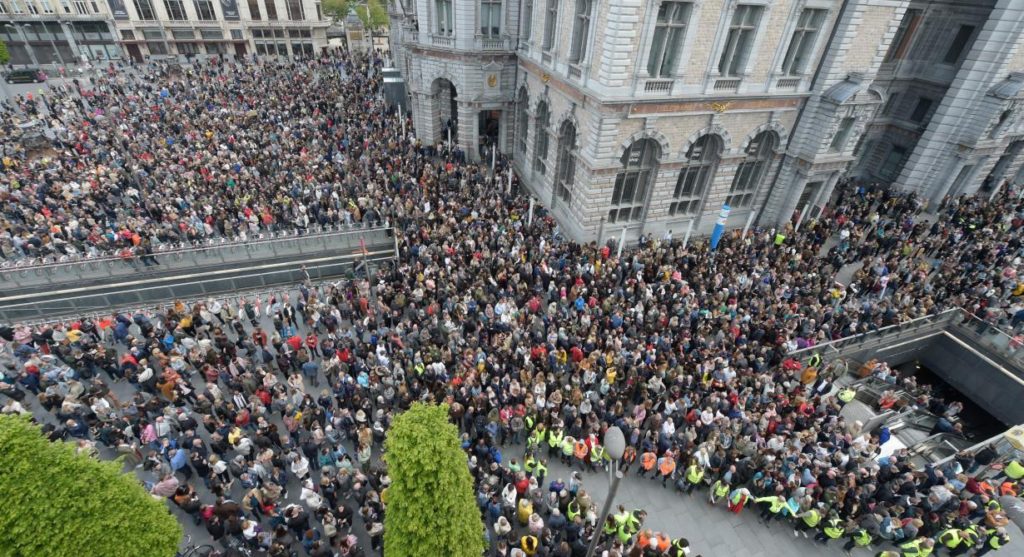Out of a sample of 100 rape cases, only one ended with the rapist serving time in prison, according to an analysis carried out for the EU Commission. The study was carried out in Belgium by crime analyst and psychologist Dr. Danièle Zucker, who reports on her evidence in today's La Dernière Heure. Last week thousands took part in a march against sexual violence (photo) after the death of 23-year-old Julie Van Espen, whose alleged rapist and killer was out of prison awaiting an appeal against a rape conviction.
From the hundred cases, half of the total involved a rape in which no perpetrator was able to be identified. This goes somewhat against the conventional wisdom which suggests most rapes take place among acquaintances rather than in attacks by strangers. In the remainder of cases, only four perpetrators made it to a court judgement, and of those, three were given suspended sentences. In the end, the sum total of those who set foot inside a prison as a result of having raped was one in one hundred, Dr. Zucker concludes.
The figure is all the more surprising given that the 100 cases she started with were all reported rapes, which it is generally agreed make up only a portion of all rapes that take place.
Dr. Zucker, who has taken part in the care of more than 1,000 rape victims, points out that the extremely low rate of any form of judicial punishment in rape cases sets up a problem for the future. “It is rare that a rapist does not go on to rape again,” she said. One in five women have been the victim of rape or attempted rape.
“Rape continues to be trivialised by police, the justice system and the public in general,” she said, which sends out a dangerous signal. Too often, rape is seen as a sexual incident gone wrong. “The victim had been drinking, provoked her attacker, was showing some cleavage or had a short skirt on,” she writes. “Studies show that 40% of Belgians expect the victim to explain herself. But rape has nothing to do with sexuality; it is always about something else – power.”
The result is that victims are reluctant to come forward and face the ordeal they know they can expect. And faced with the evidence that few rapists are punished at all, let alone severely, they prefer to turn to therapy and other solutions.
“Society encourages victims to come forward,” Dr. Zucker said. “But the convictions are not following.”
Alan Hope
The Brussels Times

